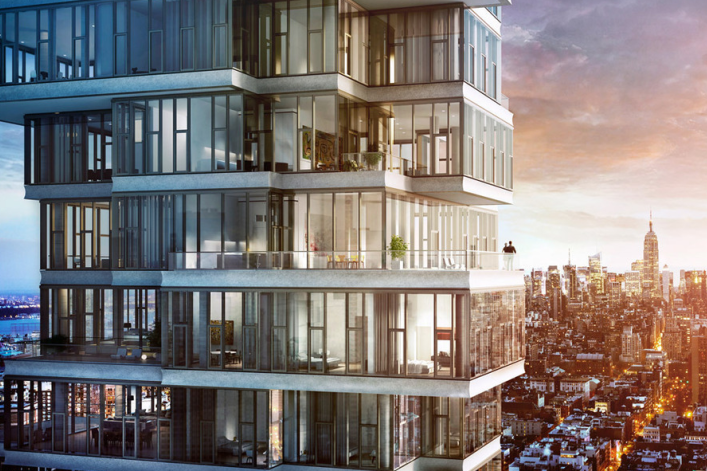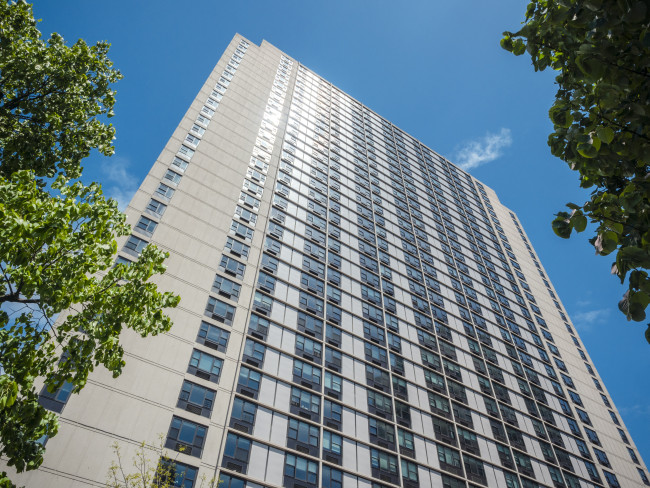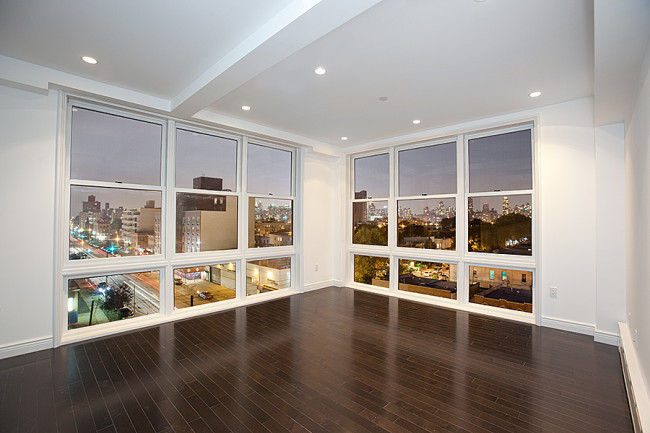Why you may want to buy (or not) in a condo when it's nearly sold-out

In the new development world, buying a condo early in its sales cycle will likely get you the lowest prices. But just because the early bird supposedly gets the worm doesn't mean it's the best one. In fact, there are plenty of reasons to make your purchase after other buyers have already staked their claim. Here's why:
• You'll have more security, because an offering plan does not a building make.
Sometimes, condos don't actually end up getting built. One of the first steps a developer takes when launching a condo is getting the offering plan—the document that spells out the specifics of a project—approved by the Attorney General’s office, a lengthy revision and approvals process that must happen before a developer can start making deals with purchasers. But a developer is only required to build as planned once 15 percent of the units are sold and the offering plan is thereby “activated."
“If it’s under 15 percent and you sign the contract and [the offering plan] is never declared effective, you may never be able to close,” says broker Mike Akerly of the Aguayo team at Halstead Property Development Marketing. The condo you expected to buy won't get built, and it could take months or even years to get your deposit back.
Once the 15-percent-sold milestone is passed, “you have a little bit more security in terms of what’s going to happen,” says David Maundrell, the president of brokerage aptsandlofts.com, and a new-development marketing specialist.
• You can't always get what you want—and may not.
You're looking to live in a building with other owners, not a rental, right? It's possible you'll end up in one anyway, by default, should you buy early. The more units that are sold, the more insurance you have that the development will take shape the way you expect. If only half of the units are taken, for example, a developer could decide to hold onto them and rent them out, especially if sales are flagging. (This was a particularly widespread strategy during the economic downturn, when developers across the city were unable to sell the condos they were building.)
“Most buyers would not want to live in a building filled with renters because they just don’t treat the property the same,” Maundrell says. Renters who've signed a year-long lease are often less invested in the long-term health of the condo, for example.
Also, if a developer plans to hang on to the condos, it may be more difficult for buyers to get mortgages, since banks are often wary of issuing loans in buildings where investors own a large portion of the units. And lastly, the bigger percentage of the building the developer, or sponsor, owns, the more say they’ll have in how it’s run—and their interests may not line up with those of the individual condo owners. "If the sponsor has a majority of the units he has control of the board and could shoot down important votes to keep the building running well [and] add needed improvements," says Maundrell. "They could decide not to pay common charges which would negatively affect the finances of the condominium, obviously."
• You'll know what you're buying.
Buying later in the sales process goes hand in hand with buying later in the construction process, which means that you'll have a better idea of what the building and apartment actually look like, rather than having to imagine them from floor plans or mock-ups in an off-site sales office.
“If you buy off a floor plan and you don’t like it for whatever reason, you’re kinda screwed,” says Maundrell, because you’re liable for the deposit even if you’re not happy with the final product. Of course, developers are required to meet certain construction standards and to follow through on the specifics set out in the offering plan. But there’s enough wiggle room that you could be disappointed if you buy well before construction starts, says Akerly. For example, if the offering plan doesn't specify, you may get GE appliances instead of Bosch, and you'd have to argue that this was a significant enough departure from the developer's promise, he says.
If you buy later, you have more options. Even if you can’t tour the apartment itself, you may be able to see a comparable layout on a lower floor, check out the lobby, walk through a model unit in the building, or even have a home inspector check the roof and windows for signs of water damage.
• You'll get (almost) instant gratification.
If you sign a deal (and plop down your down payment) before construction has started, it could easily take two years to close on your purchase and move in. (Aside from constructing the building, developers have to get a slew of approvals before they can start with closings, all of which take time.) But if you’re buying when the project is a little farther along, you’ll be able to move in relatively quickly (fingers crossed), and save yourself some planning-related headaches.
• Cheaper and easier financing options could pop up later on.
In new developments, most builders line up a “preferred lender”—a bank that takes on the risk of issuing mortgages for condos that aren’t built yet—so that early buyers can get home loans. The downside for borrowers is that the lack of competition means steeper interest rates. But the more units that are sold, the more banks will be willing to lend; that means more competition and lower rates for you. In fact, by the time a building is 70 percent sold, pretty much any bank will be willing to lend there, Maundrell says.
Another financing-related perk to buying late—depending on when closings take place—is that you’ll have a better idea of what kind of rate you can get, since you can lock one in for three or six months, says Elizabeth Unger, senior sales director at Corcoran Sunshine Marketing Group. This won't work if closings are more than six months off, of course. But if you're looking at closings a year or two down the line, you'll have a lot less certainty about rates.
• You may be able to negotiate a good deal.
If a development has just a handful of apartments left before it sells out, you may have some negotiating room on price or other perks like a storage unit, Unger notes. "If a developer only has three left, they may say, 'Let's wrap it up,' and be ready to move onto their next venture," she says. However, this will depend heavily on the particular project and the wider sales market, she notes. In many cases, the exact opposite will be true, and you'll have less bargaining power if there's a lot of competition for the few remaining condos (see below).
That said, there are plenty of reasons to delay your purchase:
• You'll pay more
Though buying toward the end of a sales process removes a lot of the risks of buying in a new development (though, of course, not the possibility that construction defects will surface after you move in), there’s one major drawback: “You pay for that security,” Maundrell says.
For developers, the rule of thumb—especially in today’s current market, when there are often more buyers than desirable apartments—is to raise prices as sales pick up and the building rises. Indeed, developers often look at the first few apartments to hit the market as “loss leaders,” says Akerly, meaning that they’re offered at something like a teaser rate to generate interest in the building.
While the timing and extent of price increases will vary from project to project, generally developers hike prices on unit types that are selling the fastest. So, for example, if three-bedrooms are flying off the shelves or if buyers are drawn to one type of layout, prices on those apartments might go up by 8 percent, Akerly says. What starts as a building with prices of $1,000 a square foot could eventually cost $1,200 a square foot, with the penthouse going on sale at the end for $1,500 a square foot, he explains.
• You many not get the apartment you want
It almost goes without saying that if you’re buying close to when a building is sold out, you’ll have fewer apartments to choose from.
But keep in mind also that developers tend to save their prized apartments—the penthouses, corner units and the like—for last. They want to get top dollar for these coveted places, and that means putting them on the market after all the prices increases have taken effect, and when a buyer with cash to burn can see the building, if not the apartment itself.
“The pro is that the best units are saved for last,” Akerly says. “The con is you’re probably going to pay more than anyone else in the building. By that time, as well, if it’s the best units that are left, oftentimes the [developer] has no incentive to negotiate.”
If you’re in the market for a penthouse, that means you’ll probably have no option but to buy towards the end of the sales process. But if your budget is more along the lines of a studio, or if you have your heart set on a high floor with a skyline view, you may be out of luck by the time sales are almost over.
*** This article was first published on September 9, 2014. It was updated on March 29, 2016.
You Might Also Like


























